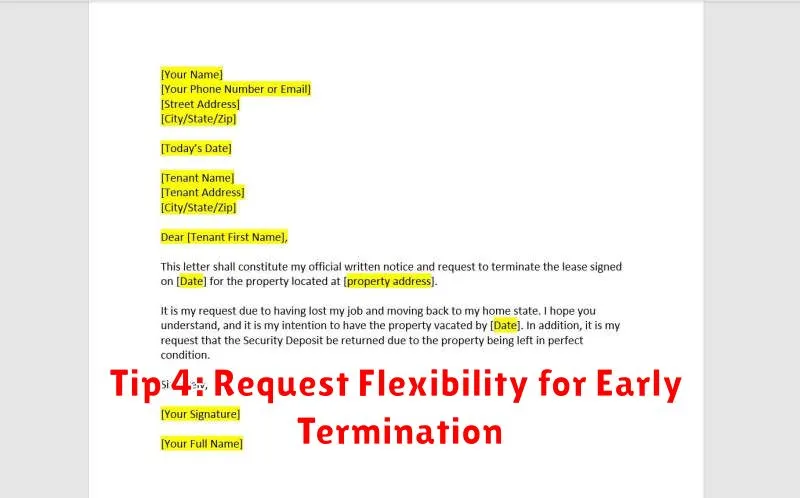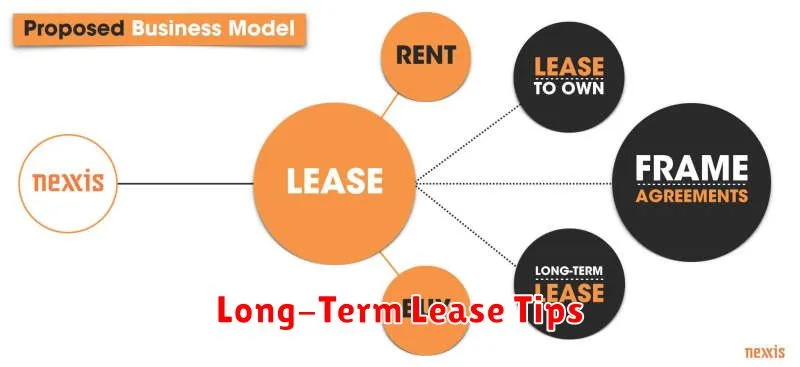Thinking about signing a long-term rental lease? Securing the perfect place to call home for an extended period requires careful planning and savvy negotiation. This guide is packed with essential tips for negotiating the best lease terms, helping you avoid costly mistakes and score a fantastic deal on your long-term rental. Learn how to navigate lease agreements, understand your rights, and ultimately find a long-term rental property that’s both affordable and comfortable. Let’s dive in and unlock the secrets to successful long-term rental negotiation!
Introduction: Why Lease Terms Matter for Long-Term Rentals
Securing a long-term rental involves more than just finding a property you like; it’s about understanding and negotiating favorable lease terms. These terms form the bedrock of your tenancy, defining your rights and responsibilities for the duration of your stay. Ignoring the details can lead to unforeseen problems and disputes down the line.
Lease terms encompass crucial aspects such as the rental amount, lease duration, payment schedule, pet policies, maintenance responsibilities, and renewal options. Carefully reviewing and negotiating these aspects ensures a smooth and conflict-free rental experience. A well-defined lease protects both the tenant and the landlord, fostering a positive landlord-tenant relationship.
Failing to properly examine lease terms can result in unexpected costs, restrictions, or even legal battles. For example, unclear clauses regarding repairs or late fees can quickly escalate into significant problems. By prioritizing a thorough understanding of the lease agreement, you can proactively avoid such issues and ensure a comfortable and secure long-term rental experience. This introductory section sets the stage for exploring specific strategies in negotiating the best possible lease terms.
Tip 1: Understand Your Lease Agreement Thoroughly

Before signing anything, meticulously review your lease agreement. Don’t just skim it; read every clause carefully. This seemingly tedious step is crucial.
Pay particular attention to sections covering rent amount and due dates, lease duration, renewal options, pet policies (if applicable), late fees, maintenance responsibilities (who covers what?), and termination clauses. Understanding these aspects will prevent future disputes and unexpected costs.
If anything is unclear, don’t hesitate to ask the landlord for clarification. It’s better to be completely informed before committing to a long-term rental agreement. Consider seeking legal advice if needed; it’s a small investment for significant long-term protection.
By thoroughly understanding your lease, you’re empowered to negotiate effectively and avoid potential pitfalls down the line. This proactive approach sets the stage for a smooth and positive rental experience.
Tip 2: Negotiate Rent Increases in Advance
Don’t wait until your lease renewal to discuss rent increases. Proactive negotiation is key to securing favorable terms. By initiating the conversation well in advance of your lease ending (ideally, 2-3 months prior), you have more leverage to negotiate a smaller increase or even potentially lock in your current rate for a longer period.
Prepare your arguments. Highlight your excellent tenancy record, including on-time rent payments and respectful behavior. If market rates are lower than your landlord is suggesting, use that as evidence to support your position. Be prepared to discuss different scenarios, such as a smaller increase in exchange for a longer lease term.
Maintain a professional and respectful tone throughout the negotiation. Your goal is to reach a mutually agreeable solution. A collaborative approach is more likely to result in a positive outcome than a confrontational one. Remember, a positive landlord-tenant relationship can benefit both parties in the long run.
By proactively addressing rent increases, you demonstrate responsibility and can potentially avoid a sudden, significant jump in your monthly payments. This proactive strategy empowers you to secure better lease terms for your long-term rental.
Tip 3: Clarify Maintenance Responsibilities with Landlords
Before signing a long-term lease, clearly define who is responsible for what when it comes to maintenance and repairs. This prevents future disagreements and unexpected costs.
Discuss routine maintenance like changing lightbulbs, unclogging drains, and cleaning gutters. Will you be responsible, or will the landlord? Get it in writing in the lease agreement.
For major repairs, such as plumbing issues, HVAC malfunctions, or roof leaks, explicitly state who bears the responsibility and cost. Consider including a clause specifying the landlord’s response time for addressing urgent repair requests.
Review the lease carefully to ensure these responsibilities align with your expectations. If something is unclear, don’t hesitate to ask your landlord for clarification before committing to the lease. A well-defined maintenance plan will save you headaches and potential expenses down the line.
Tip 4: Request Flexibility for Early Termination

Life happens. Unexpected job relocations, family emergencies, or other unforeseen circumstances can disrupt even the best-laid plans. Therefore, when negotiating a long-term rental lease, don’t hesitate to request flexibility regarding early termination.
While landlords are generally hesitant to agree to early termination clauses, it’s worth asking for a break clause that allows you to exit the lease under specific conditions, perhaps with a reasonable penalty. Alternatively, negotiate a subletting clause allowing you to find a replacement tenant to assume the remainder of your lease, relieving you of financial responsibility.
Clearly outline the situations that would necessitate early termination and propose a fair compromise. For instance, you might suggest covering a portion of the landlord’s advertising costs to find a new tenant or offering a one-month penalty. The more reasonable and prepared you are, the higher your chance of success in securing this critical flexibility.
Remember, a little negotiation can go a long way in providing you with peace of mind and protection against unforeseen circumstances. By approaching the conversation professionally and presenting a reasonable proposal, you can significantly improve your chances of securing a lease that works for you, even if your plans change.
Tip 5: Ask for Discounts on Extended Leases
Considering a long-term lease? Don’t hesitate to negotiate for a discount. Landlords often prefer longer-term tenants for the stability it provides. This means they’re often willing to offer incentives, such as reduced monthly rent, to secure your commitment.
Pro Tip: When proposing an extended lease (e.g., 2 years or more), clearly state your desire for a reduced monthly rate. Be prepared to justify your request by highlighting the benefits of a longer-term tenant (less vacancy, fewer administrative costs for the landlord). A specific percentage reduction (e.g., 5-10%) in your proposed offer can show your seriousness.
Remember to put everything in writing once you’ve agreed upon a discounted rate. This protects both you and the landlord and prevents any future misunderstandings.
How to Work with Rental Agents for Better Terms
Working with rental agents effectively is crucial for securing favorable lease terms. Communication is key. Be upfront about your needs and desired lease length, and don’t hesitate to ask questions about the property and the lease agreement. Thorough research before contacting agents will also benefit you. Understand market rates and comparable properties to support your negotiating position.
Presenting a strong application significantly improves your chances. This includes providing a complete rental history, demonstrating stable income, and having excellent credit. A well-prepared application shows the agent you’re a responsible tenant.
Negotiation is expected. While some terms are non-negotiable, others, such as the lease duration or pet fees, are often open to discussion. Always be polite and professional, framing your requests as reasonable compromises. Be prepared to walk away if the terms are unacceptable; this demonstrates your seriousness and can sometimes lead to better offers.
Remember to read the lease carefully before signing. Understand all clauses, and don’t hesitate to clarify anything unclear. Consider having a lawyer review the document if you have concerns. A well-negotiated lease protects you and ensures a smooth rental experience.
Finally, maintain a positive relationship with your agent throughout the tenancy. This fosters trust and can be beneficial if you encounter any issues during your lease period. Clear communication and professionalism are essential to a positive landlord-tenant relationship.
Conclusion: Securing a Fair and Beneficial Lease Agreement
Negotiating a long-term lease can feel daunting, but with careful preparation and clear communication, you can secure a fair and beneficial agreement. Remember to thoroughly review the lease terms, understand your rights and responsibilities, and don’t hesitate to negotiate on aspects like rent, lease length, and pet policies.
By approaching the process strategically, considering all key clauses, and advocating for your needs, you can create a lease that protects your interests and ensures a positive rental experience. A well-negotiated lease provides peace of mind and sets the stage for a comfortable and successful tenancy. Don’t settle for less than what’s fair; your proactive approach will pay off.
Ultimately, a successful lease negotiation involves a balance of mutual respect and understanding between landlord and tenant. Open communication and a willingness to compromise can result in a mutually beneficial agreement that lasts throughout the lease term.

